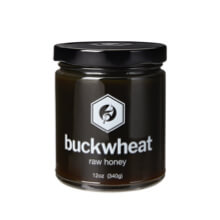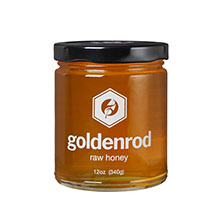The History of Raw Honey from Europe to the USA
October 29, 2024
by Rebecca Henry

Europe's Sweet Journey: Honey and Beekeeping Across the Continent
Honey has been a golden thread weaving through European history, sweetening palates and playing pivotal roles in economies, cultures, and traditions. Let's embark on a delightful journey across Europe to explore how honey and beekeeping have shaped various countries, uncovering some sweet stories along the way.Greece: Nectar of the Gods
Our journey begins in ancient Greece, where honey was considered the food of the gods. The Greeks believed bees were messengers between the mortal world and the divine. Honey was used in religious ceremonies, medicinal remedies prescribed by Hippocrates, and as a natural sweetener in their cuisine.Beekeeping techniques were highly advanced, and the legacy of Greek apiculture continues today with the production of thyme and pine honey, cherished both locally and internationally.
Slovenia: The Heartland of Beekeeping
In the picturesque landscapes of Slovenia, beekeeping is more than a hobby—it's a way of life. Home to the Carniolan honey bee, known for its gentle nature and productivity, Slovenia boasts a rich beekeeping heritage dating back centuries.The country celebrates World Bee Day on May 20th, honoring Anton Janša, a pioneer of modern beekeeping. Traditional painted beehive panels reflect Slovenian culture and artistry, and honey is a staple in their cuisine and folk medicine.
Germany: A Nation Buzzing with Honey Lovers
Germany has a deep-rooted honey culture, with one of the highest per capita honey consumptions in Europe. German forests provide nectar sources for unique varieties like forest and heather honey. Beekeeping associations are widespread, promoting sustainable practices.Urban beekeeping has gained popularity, with hives adorning rooftops in cities like Berlin. Honey in Germany isn't just food; it's a cherished tradition that sweetens both bread and life.

Poland: Traditions Carved in Wood
Poland's beekeeping history stretches back to medieval times with "bartnik" beekeeping, where hives were carved into living trees. This ancient practice is seeing a revival as part of cultural heritage.Polish honey varieties like buckwheat and linden are renowned for their unique flavors. Honey features prominently in Polish cuisine and folklore, and mead, a honey wine, is a traditional drink enjoyed during celebrations.
Spain: A Mediterranean Honey Haven
Spain's diverse landscapes and flora make it a paradise for bees. The country is famous for rosemary, lavender, and orange blossom honeys. Spanish beekeeping dates back to Roman times, and today,Spain is one of Europe's leading honey producers. Beekeeping is especially significant in regions like Andalusia and Extremadura, where it supports rural economies. Honey is integral to Spanish gastronomy, enhancing dishes and desserts alike.
Hungary: The Sweetness of Acacia
Hungary is celebrated for its acacia honey, light in color and delicate in flavor, thanks to the abundant acacia forests. Beekeeping has been an important part of Hungarian agriculture since the 19th century.Honey festivals are common, showcasing the country's commitment to apiculture. Hungarian honey not only sweetens tea and pastries but also represents a cherished connection to nature and tradition.
Italy: The Art of Beekeeping
Italy's varied climate and rich flora result in a wide array of honeys, from chestnut to citrus to eucalyptus. Beekeeping is an ancient practice here, with roots in Roman times.Italian honey is a key ingredient in many traditional recipes, like the famous nougat candy, torrone. Regions like Tuscany and Sicily are renowned for their high-quality honey, and beekeeping contributes to the preservation of Italy's biodiversity.
France: Savoring the Terroir
In France, honey reflects the concept of "terroir," capturing the unique characteristics of the region where it's produced. From lavender honey in Provence to chestnut honey in the Ardèche, French honeys are celebrated for their distinct flavors.Beekeeping in France is both an art and a science, with traditions passed down through generations. Honey enhances French cuisine, found in everything from pastries to savory dishes.
Russia: A Sweet Legacy
While our focus shifts from Russia, we can't overlook its significant contribution to Europe's honey history. In Russia, honey has been a valuable commodity and a staple in the diet since ancient times.Beekeeping was crucial for the economy, with honey and beeswax serving as trade goods. Traditional Russian beverages like medovukha (honey mead) highlight honey's cultural importance. Today, Russia remains one of the top honey producers, with diverse varieties reflecting its vast landscapes.
The United Kingdom: A Taste of Tradition
In the UK, beekeeping has a storied past, with hives found in medieval monasteries and country estates. Heather honey from Scotland and Wales is particularly prized for its robust flavor.Beekeeping societies promote education and sustainability, vital in the face of declining bee populations. British honey is enjoyed on scones, in teas, and as a natural remedy, embodying a blend of tradition and modern appreciation.
Exploring Europe's Honey Today
Europe's honey heritage is as diverse as its cultures. From the thyme-covered hills of Greece to the acacia forests of Hungary, each region offers unique flavors shaped by local flora and traditions. If you're inspired to taste these delightful honeys, consider exploring varieties like:
- Goldenrod Honey: Common in parts of Europe, perfect for those seeking a versatile honey for foods and drinks. It is known for its bright golden color and subtle floral notes, making it a delightful addition to teas, baked goods, and even savory recipes.
- Pumpkin Spice Honey: A seasonal favorite capturing the essence of autumn, though not traditionally European. Our Pumpkin Pie Spice Honey is the perfect ingredient to make your fall dreams come true, with comforting notes of cinnamon, nutmeg, cloves, and ginger.
The Last Buzz
Honey has been an essential part of Europe's identity, woven into the cultural and economic fabric of many countries. This golden elixir symbolizes the sweetness of life and the enduring spirit of communities across the continent, making it a cherished treasure that transcends time and generations. As Europe moves forward, honey remains a testament to its vibrant past and a beacon guiding its future.Whether you're a history buff, a food enthusiast, or just someone with a sweet tooth, exploring Europe's honey heritage is a delightful journey worth taking. So why not grab a jar of your favorite honey and savor a taste of history?